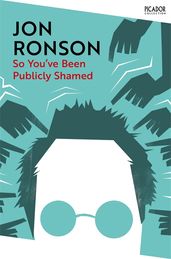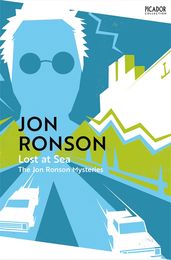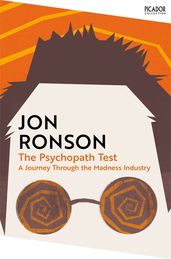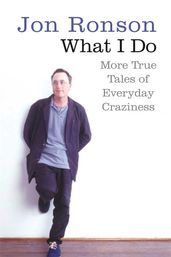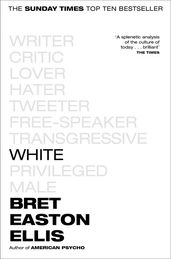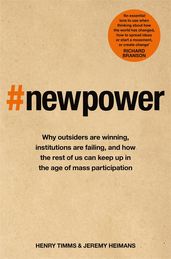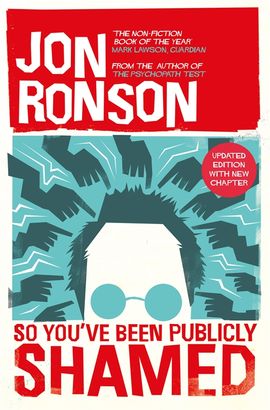
Synopsis
From Jon Ronson, the Sunday Times top ten bestselling author of The Psychopath Test, this is a captivating and brilliant exploration of one of our world's most underappreciated forces: shame.
'It's about the terror, isn't it?'
'The terror of what?' I said.
'The terror of being found out.'
Jon Ronson has travelled the world meeting recipients of high-profile public shamings. The shamed are people like us – people who, say, made a joke on social media that came out badly, or made a mistake at work. Once their transgression is revealed, collective outrage circles with the force of a hurricane and the next thing they know they're being torn apart by an angry mob, jeered at, demonized, sometimes even fired from their job.
A great renaissance of public shaming is sweeping our land. Justice has been democratized. The silent majority are getting a voice. But what are we doing with our voice? We are mercilessly finding people's faults. We are defining the boundaries of normality by ruining the lives of those outside it. We are using shame as a form of social control.
Simultaneously powerful and hilarious in the way only Jon Ronson can be, So You've Been Publicly Shamed is a deeply honest book about modern life, full of eye-opening truths about the escalating war on human flaws – and the very scary part we all play in it.
Details
Reviews
He is such an exceptional writer . . . an incredibly funny writer . . . a perfect sense of comic timing throughout, but he manages to deal with profound subjects . . . so enjoyable . . . you can be having a laugh while understanding a social phenomenon in a completely unique way; it's such a great book . . . We're buying it!
A magnificent book, subtly argued, often painfully funny and yet deeply serious. . . I'm not sure I can recommend it highly enough
A work of original, inspired journalism, it considers the complex dynamics between those who shame and those who are shamed, both of whom can become the focus of social media's grotesque, disproportionate judgments
superb and terrifying . . . So You've Been Publicly Shamed brings together all of Ronson's virtues as a writer, to a more serious purpose than hitherto . . . Ronson is a true virtuoso of the faux-naive style. He is so good at it that it's not irritating . . . Ronson has beautiful comic-prose skills . . . but Ronson's self-description as a "humorous journalist" is not the whole story. Comedy is his disguise and also his weapon. He is a moralist. Some of his best lines seem casual but contain fierce social diagnoses . . . towards the end of his new book, someone accuses him of "prurient curiosity". This prompts what may be taken as a statement of the moral approach behind all his work. "I didn't want to write a book that advocated for a less curious world. Prurient curiosity may not be great. But curiosity is. People's flaws need to be written about. The flaws of some people lead to horrors inflicted on to others. And then there are the more human flaws that, when you shine a light on to them, de-demonise people that might otherwise be seen as ogres." At its best, this is exactly what his writing can do . . . relentlessly entertaining and thought-provoking
